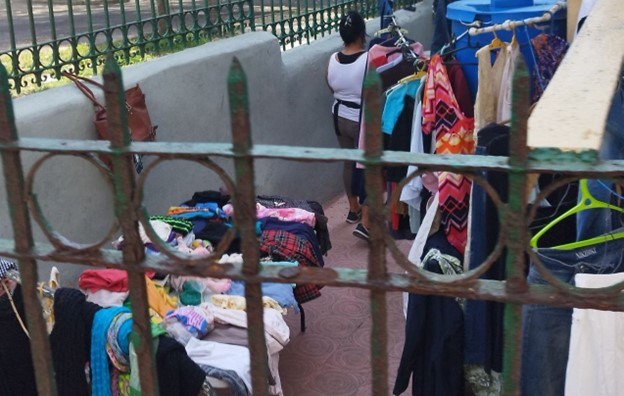
“What’s for sale now are the belongings of local people who are leaving and can’t take everything with them”
By Natalia Lopez Moya (14ymedio)
HAVANA TIMES – Women’s purses, babies’ shoes and several small home appliances are piled up on one of the tables. “These items have just come in and I haven’t had a chance to organize them yet,” the saleswoman tells a young customer, pointing to the Oster blender in a corner of a store operating out of a garage in Havana’s Vedado district.
“If you want, I can show you the cookware catalogue,” the vendor adds as she opens some black bags containing children’s books, household accessories and a huge teddy bear with a red heart in the middle of its chest. “Give me your number and I’ll send you photos through WhatsApp. We have flat screen TVs, Bluetooth speakers and a couple of microwaves. All used but in good condition.”
Cinthya, a 38-year-old woman who has been selling secondhand goods for three years, has never had so much merchandise. “I’m not accepting anything else until I can get rid of what I already have. Business is very slow. What used to sell in a few days now takes weeks or even months,” she says.
Cynthia and her husband, who drives a Ural motorcycle with sidecar inherited from his father, visit houses to evaluate everything from pots and pans to bottles of water that she might be able to sell later. “I have a network that alerts me when a family is getting ready to leave. But I only take on serious clients, people who have been recommended.”
There has long been a market for secondhand goods in Cuba, a country that has lurched from one crisis to another for decades. This type of business has not always been legal, however. When authorities lifted restrictions on privately run garage sales three years ago, it allowed many businesses which had been operating on an informal basis to do so legally.
“People associate secondhand goods with out-of-date clothing like what used to be sold in ‘trapi-shopping’ stores,” says Cynthia, referring to state-run retail outlets common throughout the island in the late 20th century that s


